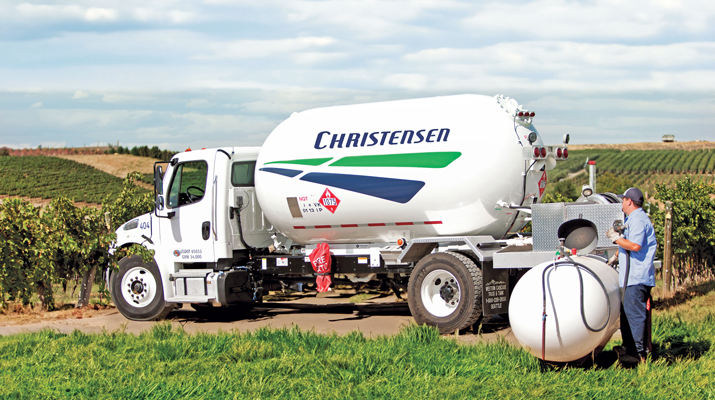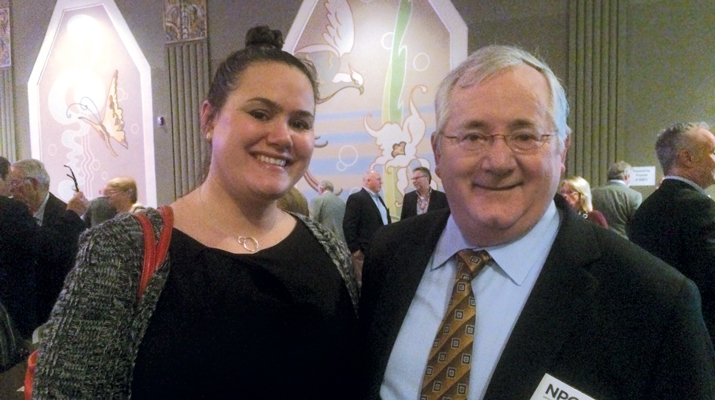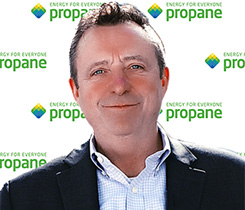LPG Spotlight: Christensen

Christensen serves a vibrant agricultural region in Washington. (Photo courtesy of Christensen Inc.)
If it’s hard to imagine operating a fuel delivery business under a carbon tax, just ask Glenn Thomas, vice president of supply and logistics at Christensen Inc., how it’s done.
No one in the fuel business quite understood how the market would play out when Washington implemented its Climate Commitment Act at the beginning of the year, says Thomas.
To reduce greenhouse gas emissions, the cap-and-invest program mandates suppliers, terminal operators and importers of fuel to purchase allowances for their contributions to state carbon emissions. While Christensen is not an obligated party under the program, it started seeing cap-and-invest fees from its suppliers.
Cost increases ranged from 50 cents to 70 cents per gallon for gas and diesel, and 30 cents per gallons for propane, reports Thomas.
Unable to absorb the added cost from its suppliers in the short term, Christensen passed some fees down to customers and sought a more viable path forward.
Based in Richland, Washington, Christensen serves a rich agricultural region, and many of its ag customers were hard-hit by the price increases.
Washington’s Department of Ecology did put exemptions in place for fuel use in key industries, including agriculture, but in the early days of implementation, Christensen ran into an unforeseen problem. Obligated parties under the cap-and-invest program – including the suppliers from which Christensen buys its product – don’t always have visibility to the end use of their products.
“The real troubling part about it for me was it was almost like you’re picking winners and losers here,” explains Thomas. “If you were large ag, you could set up your exemption with a supplier, and you could get that directly from them. But the small farmers, the folks that we deal with, were really getting saddled by these costs.”
Christensen decided to step in to facilitate the exemption process for those ag customers. It now tracks gallons purchased and sold, signing attestations to suppliers that exempt gallons are, indeed, going to agriculture end users. It has also reached out to thousands of customers to sign attestations that the gallons are being used for agriculture purposes and meet the requirements of the Department of Ecology.
“It’s a huge administrative burden for us,” says Thomas. “More so than these obligated parties, I think the fuel distributors, in general, are bearing the brunt of the administration to facilitate the exemption.”
In some cases, Christensen even fronted the additional costs for customers until exemptions were secured.
Half a year into the program, the company is now able to refund all cap-and-invest tax for its propane customers, dating back to the start of the year.
Despite the difficulty of operating in a new environment, going the extra mile to help customers save money makes good business sense from Thomas’ perspective.
“It’s mainly just gaining the trust of the customers we service today, trying to secure that loyalty,” he says. “There’s nothing more powerful here, where we operate, than that. Farmers really appreciate that partnership. I’m hoping that also leads to incremental volume and more business and more folks coming to work with Christensen.”
Company profile: Christensen
Year founded // 1980
Headquarters // Richland, Washington
Founders // Gary and Annette Christensen
Owners // Gary, Annette, Tony, Brandon, Justin, Quentin and Keagan Christensen
Vehicles // 15 bobtails, 7 transports
Annual propane gallons // 12 million
















